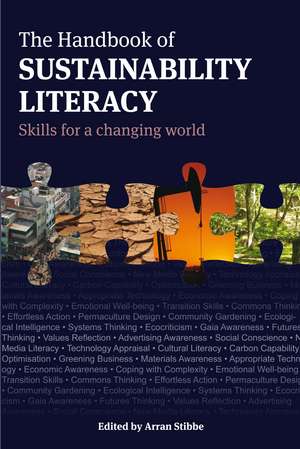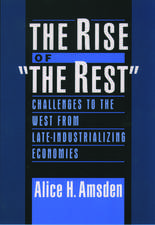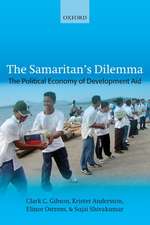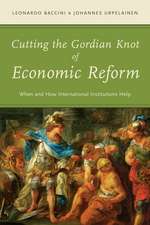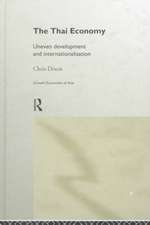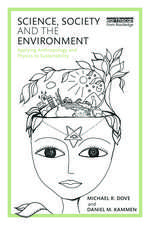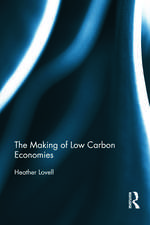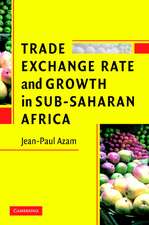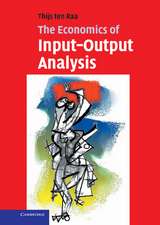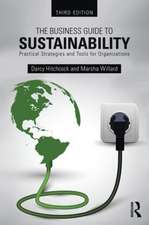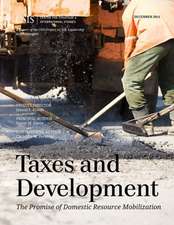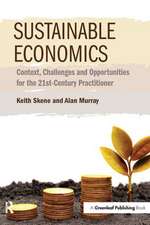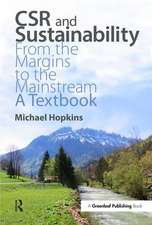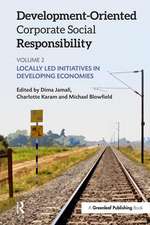The Handbook of Sustainability Literacy: Skills for a Changing World: Berlin Technologie Hub Eco pack
Editat de Arran Stibbeen Limba Engleză Paperback – 31 aug 2009
Preț: 83.41 lei
Preț vechi: 133.50 lei
-38% Nou
Puncte Express: 125
Preț estimativ în valută:
15.96€ • 16.66$ • 13.21£
15.96€ • 16.66$ • 13.21£
Carte disponibilă
Livrare economică 14-28 martie
Preluare comenzi: 021 569.72.76
Specificații
ISBN-13: 9781900322607
ISBN-10: 1900322609
Pagini: 224
Dimensiuni: 156 x 234 x 15 mm
Greutate: 0.43 kg
Editura: Bloomsbury Publishing
Colecția Green Books
Seria Berlin Technologie Hub Eco pack
Locul publicării:London, United Kingdom
ISBN-10: 1900322609
Pagini: 224
Dimensiuni: 156 x 234 x 15 mm
Greutate: 0.43 kg
Editura: Bloomsbury Publishing
Colecția Green Books
Seria Berlin Technologie Hub Eco pack
Locul publicării:London, United Kingdom
Caracteristici
Written by leading sustainability educators, who are joined by permaculturists, literary critics, ecologists, artists, journalists, engineers, mathematicians and philosophers to bring depth to this important topic.
Notă biografică
Arran Stibbe has an academic background in both humanities and human ecology, and combines the two in his teaching and research into Education for Sustainability. He lectures in the Humanities Department at the University of Gloucestershire, is a National Teaching Fellow, and a fellow of the Centre for Active Learning. He has published widely in the area of ecolinguistics and is convenor of the Sustainability in Higher Education Developers group (SHED Share), a network of 200 sustainability educators from across the UK.
Cuprins
AcknowledgementsIntroduction by Arran Stibbe and Heather Luna. Part 1 Skills for a Changing WorldEcocriticism: the ability to investigate cultural artefacts from an ecological perspective by Greg GarrardOptimisation: the art of personal sufficiency by John NaishGrounded Economic Awareness: economic awareness based on ecological and ethical values by Satish KumarAdvertising Awareness: the ability to expose advertising discourses that undermine sustainability, and resist them by Arran StibbeTransition Skills: skills for transition to a post-fossil-fuel age by Stephen QuilleyCommons Thinking: the ability to envisage and enable a viable future through connected action by Justin KenrickEffortless Action: the ability to fulfil human needs effortlessly through working with nature by Ling FengPermaculture Design: designing our lives with nature as the model by Patrick WhitefieldCommunity Gardening: skills for building community and working within environmental limits by Alma ClavinEcological Intelligence: viewing the world relationally by Stephen SterlingSystems Thinking: the ability to recognise and analyse the interconnections within and between systems by Glenn StrachanGaia Awareness: awareness of the animate qualities of the Earth by Stephan HardingFutures Thinking: the ability to envision scenarios of a more desirable future by Sue WaymanValues Reflection and the Earth Charter: the ability to critique the values of an unsustainable society and consider alternatives by Jeffrey NewmanSocial Conscience: the ability to reflect on deeply held opinions about social justice and sustainability by Myshele GoldbergNew Media Literacy: communication skills for sustainability by John BlewittCultural Literacy: understanding and respect for the cultural aspects of sustainability by Kim PolistinaCarbon Capability: understanding climate change and reducing emissions by Lorraine Whitmarsh, Saffron ONeill, Gill Seyfang and Irene LorenzoniGreening Business: the ability to drive environmental and sustainability improvements in the workplace by Zoe RobinsonMaterials Awareness: the ability to expose the hidden impact of materials on sustainability by Melinda WatsonAppropriate Technology and Appropriate Design: the ability to design systems, technologies and equipment in an appropriate way by Mike CliffordTechnology Appraisal: the ability to evaluate technological innovation by Gavin HarperComplexity, Systems Thinking and Practice: skills and techniques for managing complex systems by Dick Morris and Stephen MartinCoping with Complexity: the ability to manage complex sustainability problems by Bland TomkinsonEmotional Well-being: the ability to research and reflect on the roots of emotional well-being by Morgan PhillipsFinding Meaning without Consuming: the ability to experience meaning, purpose and satisfaction through non-material wealth by Paul MaitenyBeing-in-the-World: the ability the think about the self in interconnection and interdependence with the surrounding world by John DanversBeauty as a Way of Knowing: the redemption of knowing through the experience of beauty by Barry BignellPart 2 Educational Transformation for Sustainability LiteracyCitizen Engagement by Geoff FaganRe-educating the Person by Karen BlincoeInstitutional Transformation by Anne PhillipsA Learning Society by Kate Davies
